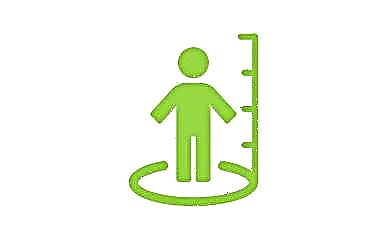Stool disorder in a baby under one year old is a fairly common occurrence. It can manifest itself as diarrhea or constipation. The latter is much more common. The reasons for difficulty with defecation can be different, most often it is due to improper diet. A consultation with a pediatrician will help solve the problem.

Stool disorder in children is common
If the child has constipation at 7-11 months
Young children, starting from six months, often have digestive disorders. If a child has constipation for 6 months, the doctor will tell you what to do. A long absence of defecation is dangerous because:
- Leads to general intoxication of the body;
- Provokes dehydration;
- Delivers severe discomfort to the child, the baby will cry and worry;
- May be the beginning of serious illness.
That is why parents should control the baby's stool and notice alarming symptoms in time (for example, the baby can cry for a long time, raising his legs to his stomach).
Stool norms at 7-11 months
Since every child is different, there are no stool norms at this age. Children can go to the toilet daily or once every few days. The last option is the norm if:
- The baby has a good appetite;
- He is active and cheerful;
- No weight loss;
- The child is not bothered by intestinal colic and abdominal pain.
If the baby is uncomfortable for a long time without a bowel movement, it is most likely constipation that requires treatment.
Types of constipation at 7-11 months
At this age, babies have physiological constipation - a prolonged absence of stool that does not cause discomfort. This problem is temporary and is associated with the underdevelopment of the digestive system or overfeeding of the crumbs. However, when the absence of stool is accompanied by abdominal pain and colic, the problem is pathological. Rules of conduct in this case:
- Do not give any medication before consulting your pediatrician;
- Do not give laxatives to the baby;
- Massage the baby's abdomen clockwise;
- Putting the baby on the stomach more often, this activates intestinal motility.
Sometimes, stool disorders are associated with a serious congenital abnormality of the gastrointestinal tract. In this case, the consultation of a pediatric surgeon is required. Constipation in a 7 month old baby is not uncommon. Pathology is less common than the normal variant.

Problems with bowel movements are often caused by sluggish bowel movements
Causes of constipation at 7-11 months
If a child has constipation of 7 months, what to do, the doctor will answer. He will also determine the type of stool disorder. The most common cause of the problem is:
- Using the wrong formula;
- Too early and quick introduction of complementary foods;
- Individual intolerance to certain foods;
- Reaction to new dishes.
Also, young children may have bowel cramps caused by stress. In this case, consultation with a neurologist is required. In most cases, you can find out the cause of a bowel disorder by observing your child and monitoring his daily diet.
For babies prone to a long absence of stool, it is recommended to drive vegetable puree as the first complementary food. Vegetables activate intestinal peristalsis, due to the content of coarse vegetable fiber. Zucchini, broccoli, and cauliflower are especially beneficial. By contrast, potatoes and bananas can be a delicate problem. This must be borne in mind when forming a diet for a baby. Pumpkin also has a slight laxative effect.
Interesting. If the infant continues to actively suckle along with complementary foods, the cause of the disorder in the stool may be the nutrition of the nursing mother. Mom should not get carried away with smoked and fried foods, as well as spices and fast food.
How to deal with constipation
Constipation in an 11 month old baby can be treated with dietary adjustments. The same applies to young children starting from six months. Constipation in a 7 month old baby what to do at home:
- Do not overfeed your baby;
- Give your child as much water as possible to drink;
- Stimulate the active movements of the baby;
- If the baby is very worried, you can insert a gas tube or give an enema.
Active physical movements help well. For this, the baby must be laid on his stomach and stimulated to crawl. Physical activity "starts" the intestines.
Starting from 9 months, when fermented milk products are already included in the child's diet, the baby should be given children's kefir and yogurt every day. They contain probiotics and gently normalize stools, while gentle on the digestive system of the infant. It is strictly forbidden to give a child fermented milk products intended for adults or children from three years of age - they may contain preservatives that cause allergic reactions.
A clockwise abdominal massage is considered a fairly strong remedy against disturbance of intestinal motility. The movements must be strong and precise. Evening bathing has a relaxing effect on the intestines, especially if the child is actively moving his arms and legs in the bathroom. All of these simple remedies can help you safely cure stool disorders without using laxatives or going to a doctor. The main thing is to carry out treatment and prevention on a daily basis.

Do not get carried away with enemas, the intestines should work on their own
Attention! One of the most effective folk remedies for childhood constipation is considered a small bar of soap, carefully inserted into the baby's anus instead of an enema. However, you should not listen to the advice of "wise" grandmothers - such treatment will not be effective.
Disorder prevention
To prevent the disorder, it is necessary to reduce the use of foods that contribute to a long absence of stool (pear, banana, potato, rice porridge). Recommended products for consumption - plum, apple, all types of cabbage. Prunes have a wonderful relaxing effect. However, you should not get carried away with them, so that constipation does not turn into diarrhea, otherwise you will have to treat another disease.
The more liquid a baby drinks at home while breastfeeding or bottle-feeding, the better his intestines work. Children from six months old who receive complementary foods should definitely drink water every day. Water helps to cleanse the body and flushes out all harmful substances from it, therefore its value in baby food is invaluable.
If a child of seven or eleven months does not go to the toilet for a long time, do not panic. It is possible that this is only a temporary phenomenon. However, if constipation recurs often and causes discomfort to the baby, it is urgent to find out the cause of their occurrence in order to help the baby. To do this, you should undergo a medical examination and diagnosis.



